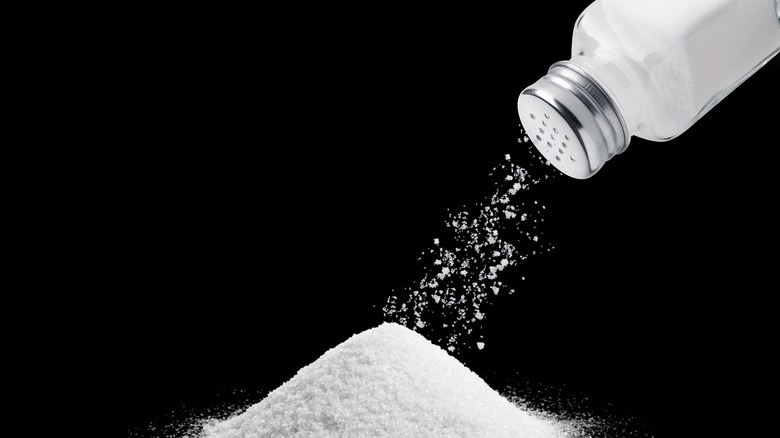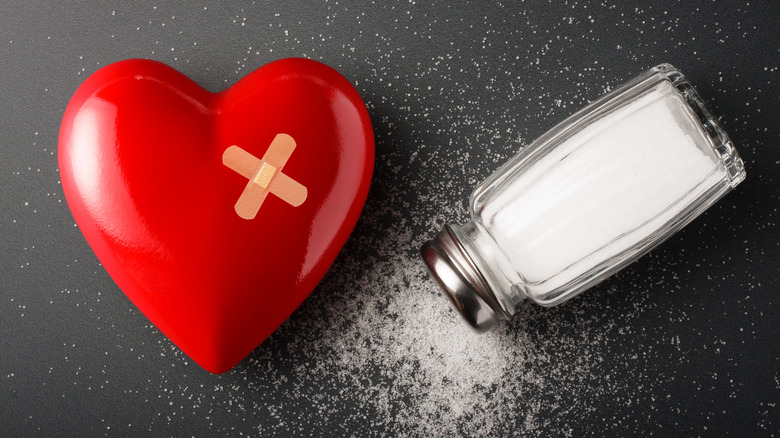Research Finds Salt Lovers May Be Shaving Years Off Their Lives
The salt shaker is often the first thing someone grabs when trying to add a little more flavor to a meal, but new research suggests that could come with consequences. In a study published by the European Heart Journal, researchers concluded that frequently adding salt to food is associated with a higher risk of early death. There are also indications that high salt intake reduces a person's life expectancy.
The study included more than 500,000 adults, and found that those who always added salt to their food were 28% more likely to die early than people who skipped the extra sodium (per U.S. News and World Report). On average, high salt consumption resulted in losing about two years of life expectancy at 50 years old.
A lead researcher in the study, Dr. Lu Qi of Tulane University School of Public Health and Tropical Medicine, says the study's findings don't prove salt is deadly, but it is a case for the general public to go easy on the sodium.
According to the Centers for Disease Control and Prevention (CDC), the Dietary Guidelines for Americans recommend that less than 2,300 milligrams of sodium should be consumed per day in order to maintain healthy eating. That's slightly less than one teaspoon of table salt (per Mayo Clinic). However, the average person typically consumes significantly more, reaching closer to 3,400 mg of sodium every day.
How to reduce salt intake
Reducing daily sodium intake can have positive effects on health and lifespan. Diets that are higher in sodium put a person at risk for developing high blood pressure, a major cause of heart disease and stroke (via the Food and Drug Administration). If you're unsure of how much salt you typically consume, try tracking it.
Registered dietitian Julia Zumpano tells Cleveland Clinic, "Most of us eat similar foods every day. So if you just track the amount of sodium that you eat for two days during the week, plus the weekend, in a food diary, you'll get a nice average of your sodium intake."
There are simple ways to lower salt intake that can have long-term effects. Reducing salty foods is a good place to start. High sodium food items include frozen meals, processed snack foods, condiments, and canned soups (per Cleveland Clinic). Dining out can also increase salt intake, making it difficult to monitor how much sodium is being consumed. Preparing meals at home allows you to control how much salt you're eating and keep salt amounts in check.
If you're afraid of food tasting bland, try salt-free options that will season food without the sodium. The Cleveland Clinic notes that fresh herbs like parsley, oregano, and rosemary can improve taste, and if you're looking for spice, try peppers like cayenne or jalapeño to kick up the flavor without salt.


